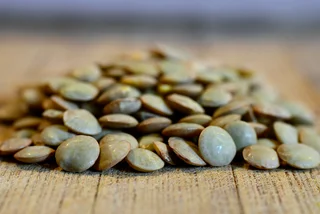For Czechs, the turning of the calendar from the old year to the new on Jan. 1 carries both cultural traditions and historical significance. Throughout the 20th century, momentous events shaped the Czech lands on this iconic date, cementing its role in the country's identity.
The Velvet Divorce
On Jan. 1 at the turn of 1992 and 1993 , Czechoslovakia split into the Czech and Slovak Republics. The Velvet Divorce refers to the peaceful dissolution of Czechoslovakia, a state formed in 1918, into two separate nations, the Czech Republic and Slovakia, on Dec. 31, 1992.
The historical context leading to this split involves the complexities of Czechoslovakia's formation, the impact of World War II, the influence of Czechoslovakism promoting unity between Czechs and Slovaks, and the communist era that lasted until 1989.
The division occurred without a referendum, with political leaders Václav Klaus and Vladimír Mečiar ultimately agreeing to the split.
Despite initial concerns, the relationship between the Czech Republic and Slovakia has evolved positively, characterized by shared cultural ties, EU and NATO memberships, and ongoing close interactions between the two neighboring countries. Today, Jan. 1 is commemorated with a bank holiday, the Restoration Day of the Independent Czech State.
On this day
- 1770: Empress Maria Theresa issues the Teresian Penal Code, unifying criminal law in Czech and Austrian lands on Jan. 1.
- 1784: Meteorological records begin in Klementinum on Jan. 1, creating the world's longest continuous series of meteorological data.
- 1876: The Metric Convention comes into effect in Austria-Hungary on Jan. 1, replacing traditional units with the metric system of length, content, and volume.
- 1900: On Jan. 1, Czechs pay in crowns for the first time, marking the introduction of the national currency. The exchange rate for gold, the original currency, was 2:1.
The president's New Year's Day speech returns in 2024
Since gaining independence, the Czech president has traditionally delivered a New Year's address to the nation. This practice was initiated by the first Czechoslovak president, Tomáš Garrigue Masaryk, who traditionally gave a New Year's interview to the newspaper and addressed the National Assembly on New Year's Day 1919. In the 1930s, Masaryk began giving Christmas speeches.
Edvard Beneš, the second Czechoslovak president, also continued the tradition with his Christmas Eve radio speeches after taking office. Even the president of occupied Bohemia and Moravia, Emil Hácha, did not break this tradition. The interruption came with the first communist president, Klement Gottwald, who began delivering a message to the nation on New Year's Day.
The president's speech will be broadcast today at 1 p.m.
Presidents of the independent Czech Republic, including Havel and Klaus, also followed the tradition of giving New Year's speeches to the nation.
However, in 2013, President Miloš Zeman broke with tradition by delivering a speech on Dec. 26, justifying the change by saying that it aligned with the First Republic's custom.
The newly elected Czech President, Petr Pavel, makes history on Jan. 1 by returning to the custom. Pavel breaks a decade-long tradition by delivering a New Year's speech, departing from his predecessor Miloš Zeman's Christmas message. Prime Minister Petr Fiala, who previously delivered the New Year's Day message, gave a Christmas speech this year due to Pavel's return to giving the New Year's message.
Walks, lentils and weather lore
Beyond politics, a number Jan. 1 traditions that are rooted in folklore are still observed today. It's tradition to take a walk on New Year's Day as part of celebrating the arrival of a new year.
According to the folk belief, 'as you start the new year, so shall your footsteps fall all year."
According to the folk belief, "as you start the new year, so shall your footsteps fall all year." Many take walks through local parks and woodlands as a way to symbolically set their path for the coming months.
Alongside walking, Czech New Year's Eve holds many rich cultural traditions. According to folklore, certain activities were avoided on the night of Dec. 31 and morning of Jan. 1 to prevent bad fortune in the new year. Washing and laundry, taking items out of the home, or sweeping could inadvertently "sweep out" one's luck.
Many superstitions also existed around food and are still observed today. Consuming poultry, rabbits, or fish was neglected for fear they would make luck "fly" or "swim" away. Lentils and pork, especially knuckle, are favored dishes as they were thought to bring wealth and happiness.
The weather on New Year's morning also held various omens, with clear skies, wind or snow each foretelling the growing seasons. The day that the Jan. 1 falls is also a harbinger of weather: As today's holiday is on Monday, we can expect a harsh winter, wet spring, floods, and diseases.












 Reading time: 3 minutes
Reading time: 3 minutes 
































